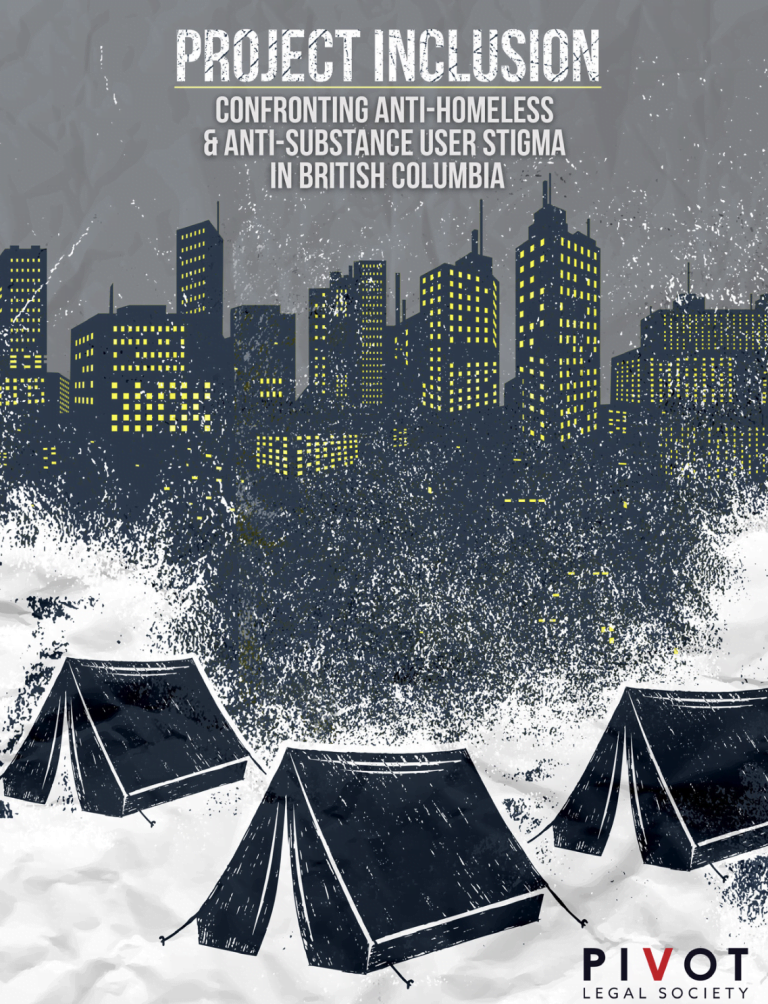6 search results
for
Non-profits and community organizations
How court-imposed conditions set people up to fail
The Provincial Court of British Columbia should:
Recommendation 18: Create a Provincial Court resource outlining “harm reduction services,” including a definition of:- “drug paraphernalia” as harm reduction equipment;
- “Safe Consumption Sites” and “Overdose Prevention Sites”;
- needle exchange;
- opioid substitution treatment; and v. low-barrier health services.
-
Category and theme:
Audience:
Groups affected:
Location of recommendation:
Service gaps and barriers
The Ministry of Social Development and Poverty Reduction must make immediate changes to BC’s Income Assistance and Disability Assistance programs including:
Recommendation 28: Ensuring that people living with disabilities can access disability support by:- simplifying the application process to reduce wait times and lessen reliance on advocates;
- providing provincial guidelines for doctors/service providers on how and when to fill out disability forms; and
- ensuring that hospital social workers are resourced and directed to work with patients in need to apply for disability benefits.
-
Category and theme:
Audience:
Groups affected:
Location of recommendation:
Service gaps and barriers
Recommendation 29: The Legal Services Society of BC must provide legal support for appeals where a person has been denied income assistance or disability assistance.-
Category and theme:
Audience:
Groups affected:
Location of recommendation:
Service gaps and barriers
Recommendation 30: The Ministry of Housing and Municipal Affairs must immediately improve the number and accessibility of shelter options to ensure that everyone in BC always has access to a physical location where they can sleep, store belongings, and attend to personal care and hygiene in safety and without threat of displacement or sanctions. To do so they must:- work in partnership with BC Housing to reinstate nightly turn-away counts at shelters and use data to ensure that there are adequate shelter beds to address the level of need in each municipality;
- with the exception of temporary Extreme Weather Response shelters, recognize that overnight-only shelters are untenable for residents and provide funding to expand shelter hours; and
- provide shelter residents an accessible and independent complaint process.
-
Category and theme:
Audience:
Groups affected:
Location of recommendation:
Service gaps and barriers
Recommendation 31: All government actors and health care providers must recognize the specific and indispensable expertise of people with lived experience. Increase peer-run and peer-delivered services and peer-support positions within government services by:- developing a provincial advisory board of people with lived experience of homelessness for BC Housing;
- establishing provincial best practices for engaging people with lived experience of poverty, homelessness, and substance use in service delivery modelled on GIPA (Greater Involvement of People living with HIV/AIDS), MIPA (Meaningful Involvement of People Living with HIV), and NAUWU (Nothing About Us Without Us) principles;
- collaborating with peer-led organizations to audit all provincial services (hospital, health, income assistance, shelter, housing) to identify and fund opportunities for peer engagement in service provision and planning; and
- developing a model for peer-involvement in the design and execution of homeless counts.
-
Category and theme:
Audience:
Groups affected:
Location of recommendation:
Operationalizing stigma-auditing
Recommendation 32: In consultation with experts, including human rights law organizations, trauma specialists, and people with lived experience, the Province of British Columbia should adopt a standardized tool and training protocol for conducting “stigma audits” of current laws, policies, and regulations in BC, and to inform the development of new laws, policies, and regulations.-
Category and theme:
Audience:
Groups affected:
Location of recommendation:
